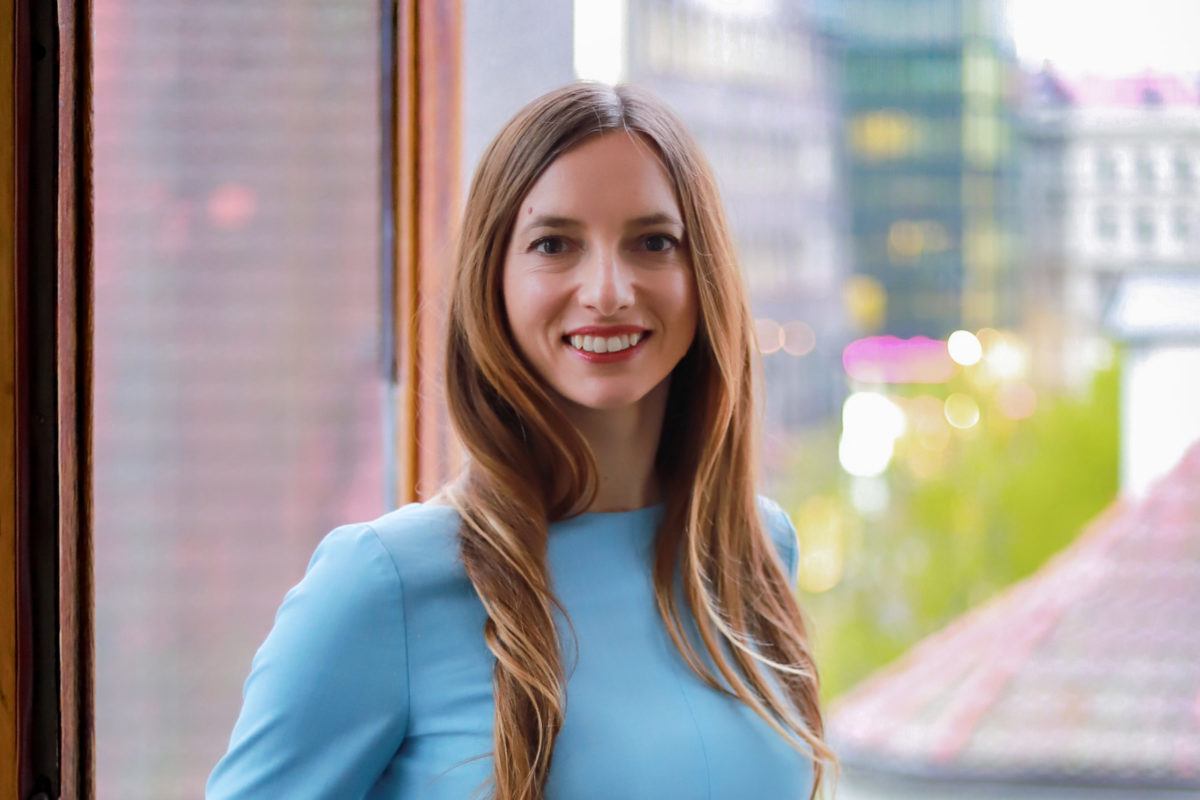Monika Mareková is one of the brightest figures of the Czech Republic’s new generation of lawyers. As an office for her wide range of services, she selected space in Offices Unlimited on Prague’s Na Příkopě Street.
Mareková, a young lawyer, is often seen and heard in the media. As a member of the board of Amnesty International and one of the few attorneys with experience of the International Criminal Tribunal in The Hague for the former Yugoslavia, journalists question her about the war in Ukraine as well as on the future of self-driving cars. She is also a member of the ethics committee for autonomous mobility, which falls under the Ministry of Transportation.
Although the range of areas that Monika Mareková is interested in professionally may seem surprising, her career unfolded in a very organic way. Her interest in human rights led her to explore the right to privacy, which is often at odds with new technologies. Her master’s thesis focused on GPS tracking. In its conclusion, she posited that the Czech Republic may have violated the Convention on Human Rights.
Monika Mareková considers the right to privacy as one of the key rights, but one that we often give up with relative ease, especially in the online world. “However, this can have far-reaching impacts on our lives,” she warns.
“By collecting and analyzing data, their owners can manufacture a parallel reality for targeted audiences with clearly defined Information from ads to news. This way, they can influence people’s opinions and needs extremely effectively,” she says, adding that society then seals this social engineering in impenetrable opinion bubbles whose members find it increasingly difficult to find common ground.
“For us not to become a totally controlled society, it’s necessary to regulate the collection and use of data differently than it’s done today,” says the attorney. This is why, in addition to her law practice, she is involved in academic projects that deal with the legal aspects of the development of new technology. Currently, she’s working on a project of the Czech Science Foundation exploring the use of artificial intelligence within the context of litigation.
“For instance, there are startups that are developing systems that can predict the outcome of court cases. These systems can be more successful in their predictions than the most experienced lawyers,” says Mareková.
In the United States, artificial intelligence is used in the handing down of suspended sentences in less serious cases. According to Marekové, however, we’re not yet confident that the algorithm can correctly assess all the nuances of previous court decisions, so, paradoxically, there is a risk that verdicts will be influenced by bias when AI systems are used. “Technologies can make the court system more effective and streamlined, but until we can eliminate bias, it’s prudent to wait before we use them in actual court proceedings.”
